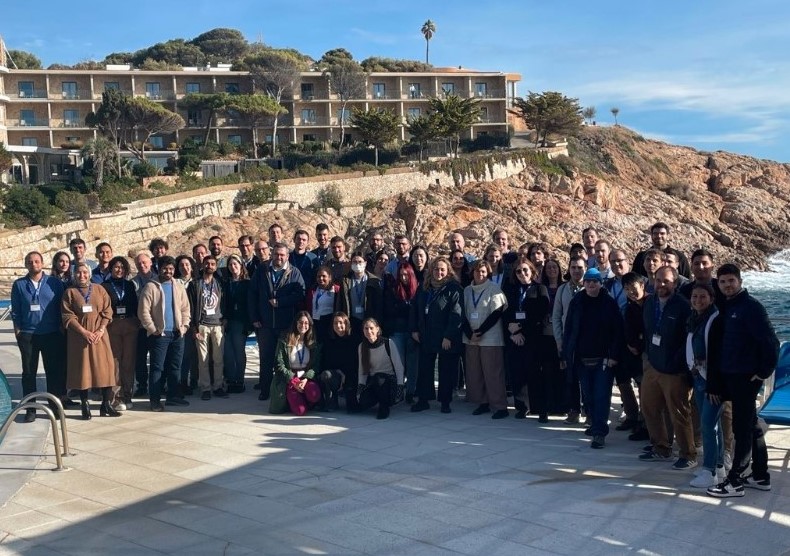
The EMBO Workshop: “Computational models of life: From molecular biology to digital twins” was held at Sant Feliu de Guíxols, Spain from 26 November to 1 December 2023.
The event gathered 18 speakers from the top of their field, and 47 attendees from various European countries, but also from Algeria, Egypt, Chile, China, India, and USA. Over 5 days, 7 thematic sessions were presented:
- Session 1: Molecules and proteins modelling
- Session 2: Omics data
- Session 3: Network to models
- Session 4: Metabolic modelling
- Session 5: Signalling modelling
- Session 6 and 7: Tissue and organ modelling
This training opportunity offered a convergence of cutting-edge techniques in single-cell omics, modeling, and high-performance computing in regards to the development of realistic and scalable human digital twins. The workshop provided a deep dive into revolutionary methodologies but also served as a nexus for networking and knowledge exchange among participants. For early career researchers, the prospect of delving into the professional and academic backgrounds of accomplished speakers was an invaluable chance for growth.
This dynamic event went beyond conventional formats, featuring scientific speed dating, illuminating flash talks, meet-the-speaker sessions, career path discussions, poster presentations, and engaging social activities. Attendees were poised to extract maximum value from this immersive workshop experience.
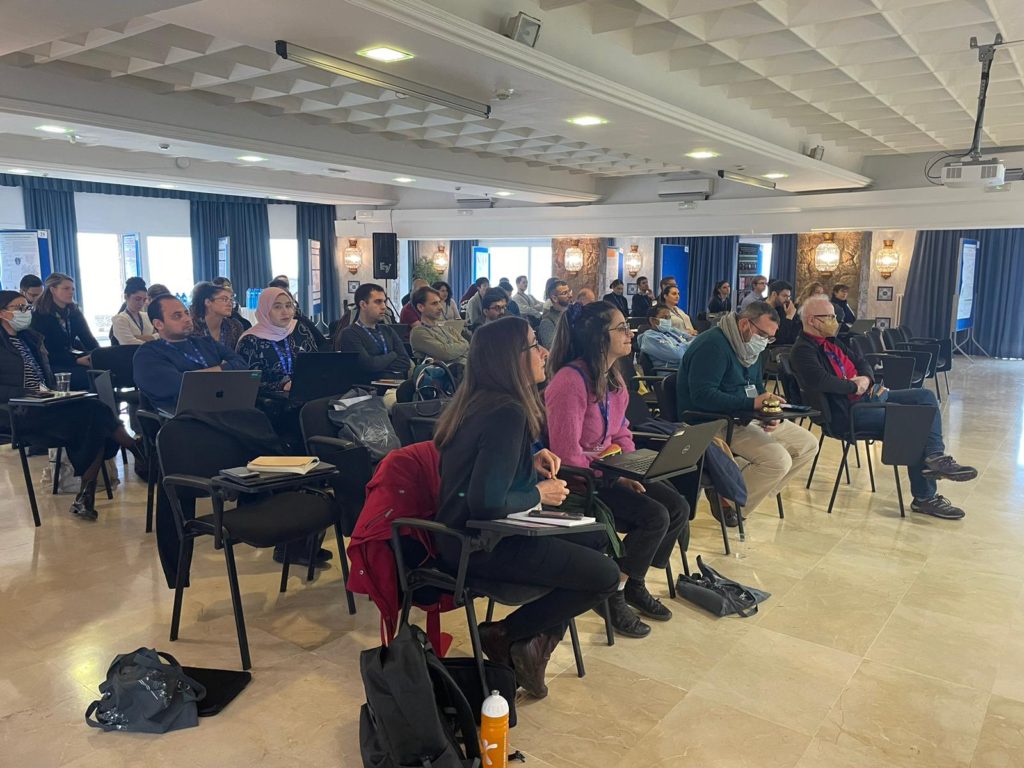
The event showcased a lineup of five distinguished career path speakers, each representing a unique trajectory – from academics turned start-up founders to science communicators. Their journeys, both traditional and unconventional, position them as leaders in their respective fields.
Flash talks and poster sessions provided a platform for early-career researchers and seasoned academics alike to showcase their work, inviting constructive feedback from peers and the aforementioned trailblazing speakers. The international scope of participants underscored the workshop’s global significance, attracting professionals and speakers from various corners of the world.
PerMedCoE-related sessions:
- Rossen Apostolov, KTH Royal Institute of Technology: Advanced methods for extreme-scale biomolecular simulations & Community Impact
- Javier Conejero, Barcelona Supercomputing Center BSC: Programming workflows with PyCOMPSs and PerMedCoE’s Building Blocks
- Saran Pankaew, Institut Curie: The power of logic: Modelling cancer across scale, with the help of omics data
- Mariano Vazqeuz, BSC/ELEM: Supercomputer-based in-silico clinical trials on Virtual Human Twins
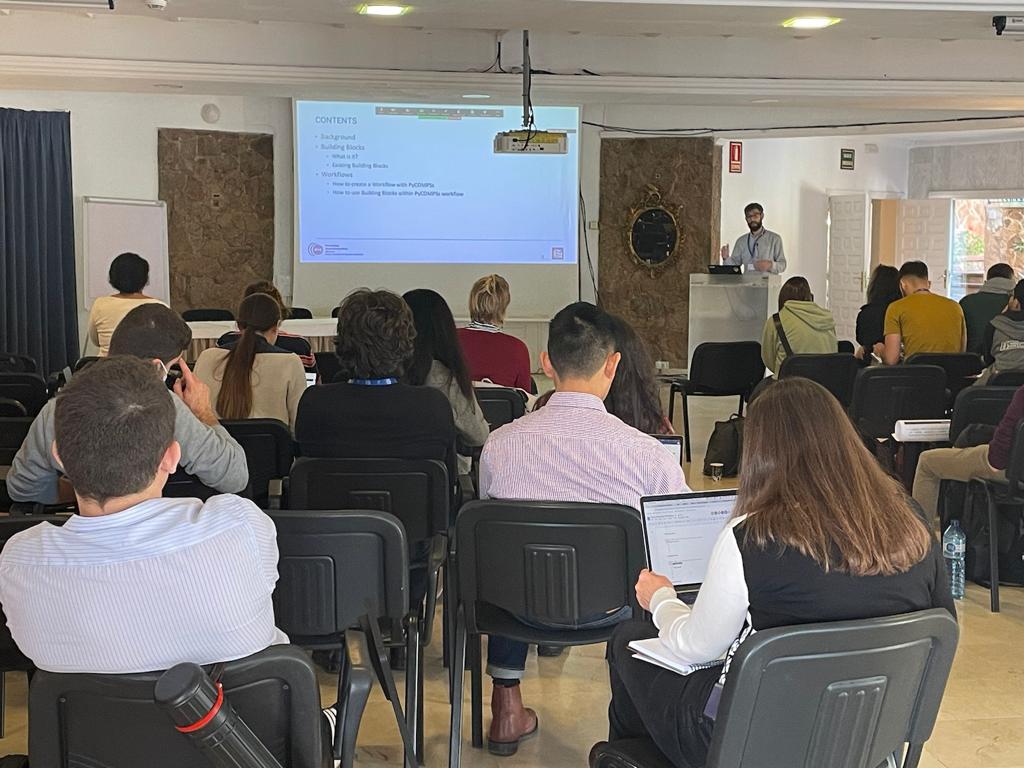
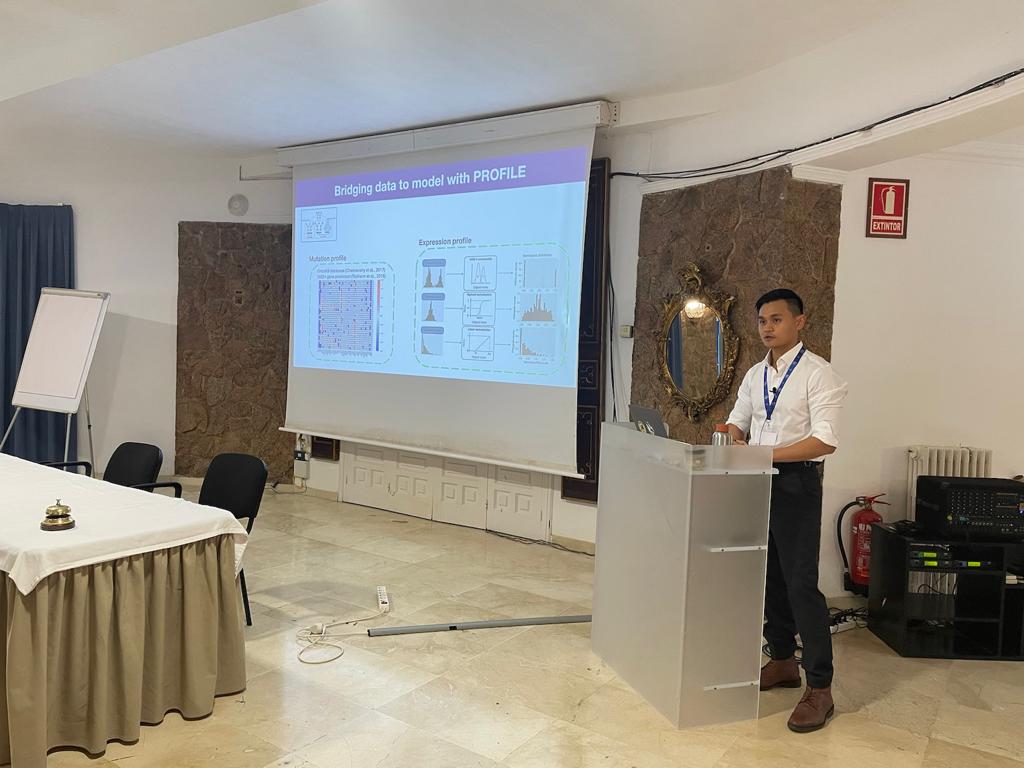
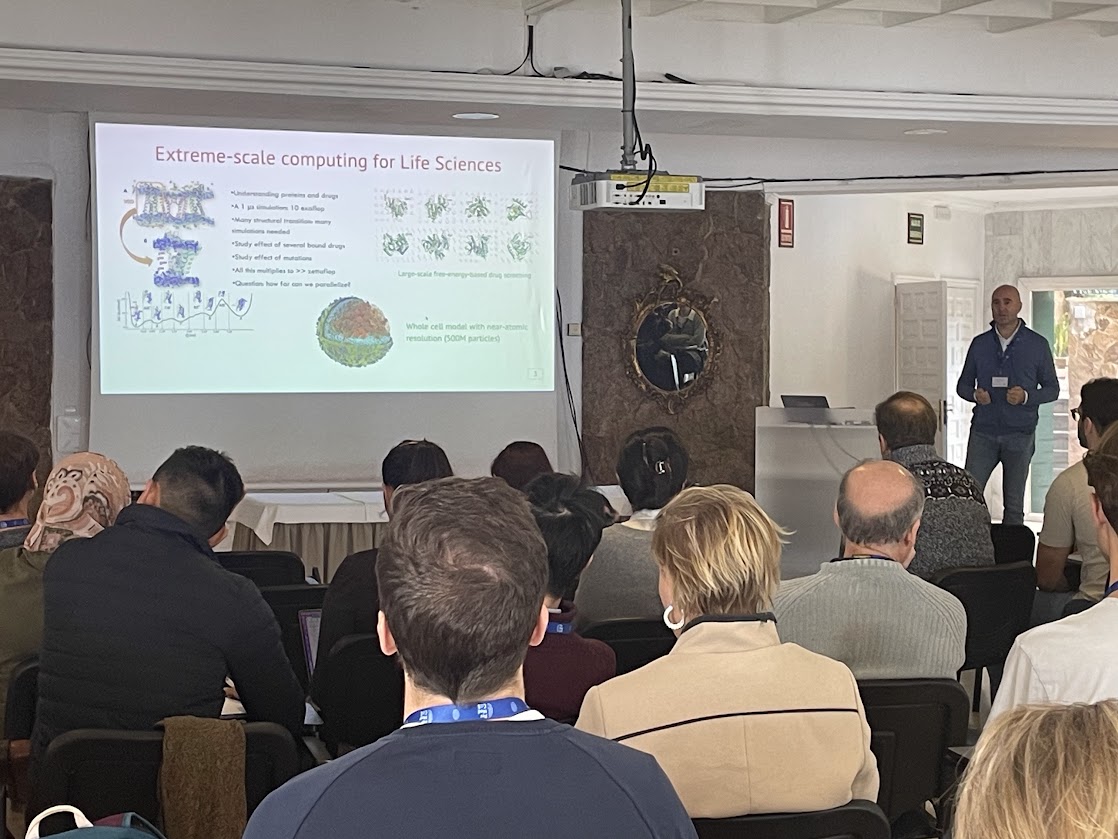
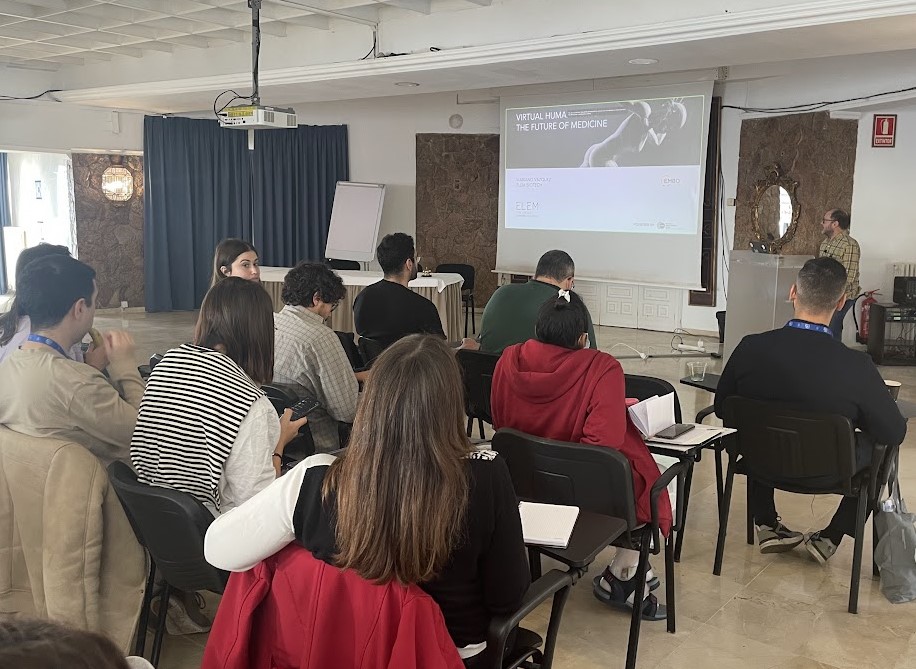
Flash Talks:
- Othmane Hayoun: Multiscale modelling of gastric cancer: Digital twins for studying druge resistance
- Alejandro Madrid: Spatially-resolved multiscale models shed light into personalized
drug treatments - Thalia Diniaco: A community benchmark of multiscale modelling tools serves as beacon for the construction of digital twins
- José Estragués: Optimized Finite Volume Methods solver allows for real-sized tumor simulations
- Iria Pose: Machine Learning approaches for the characterization of COPD
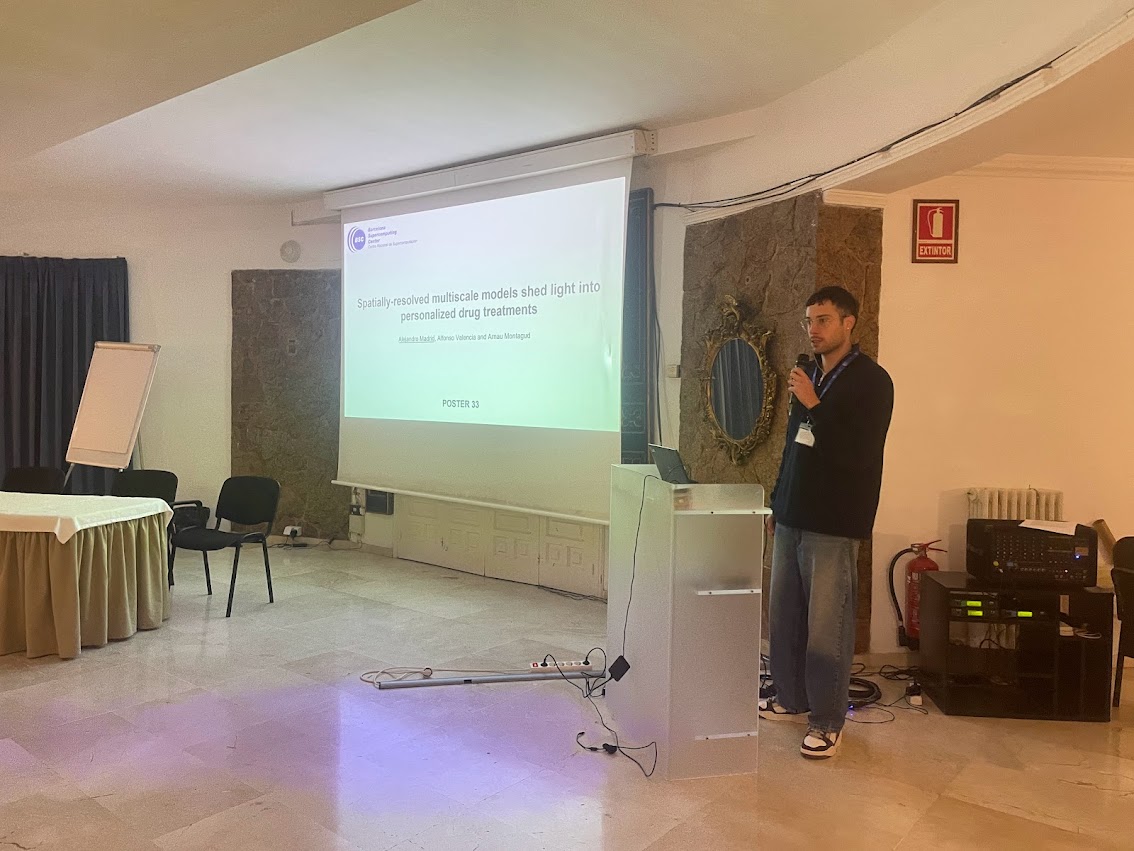
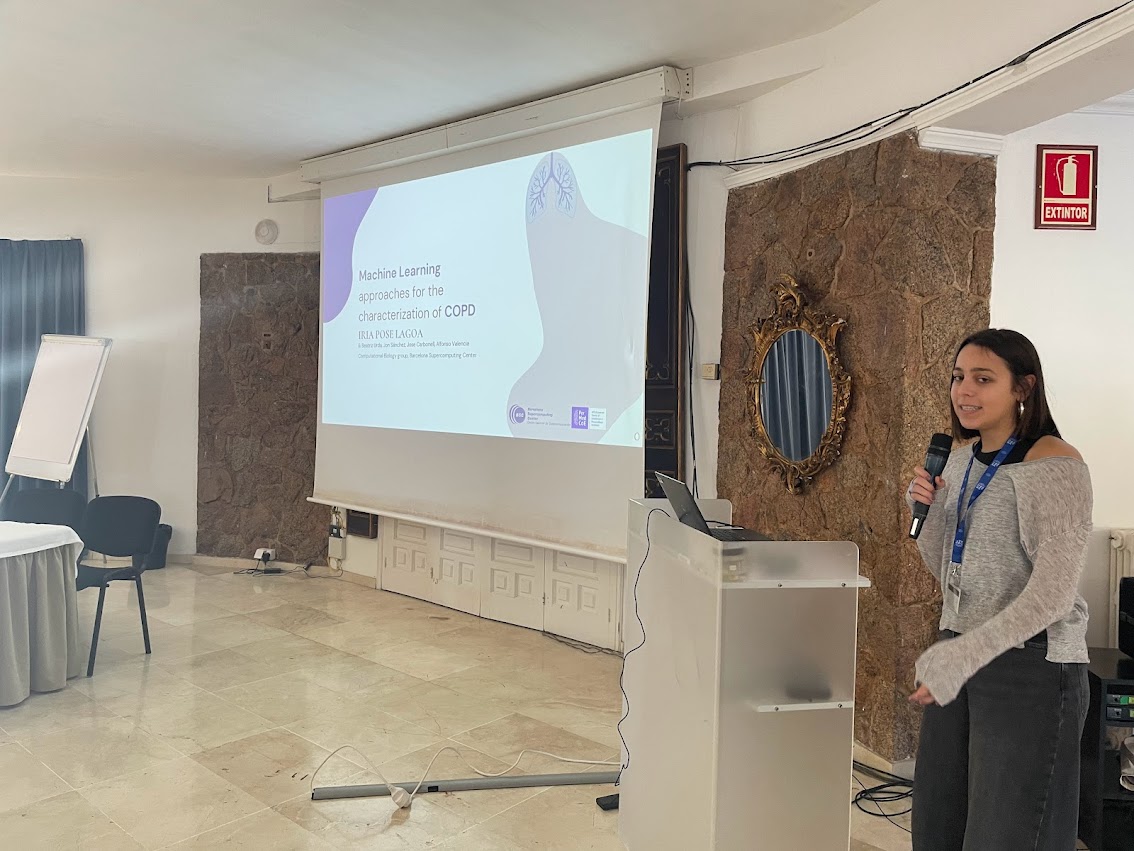
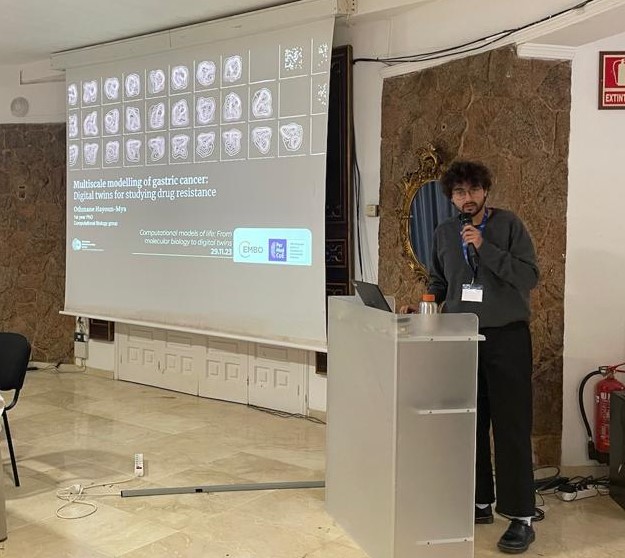
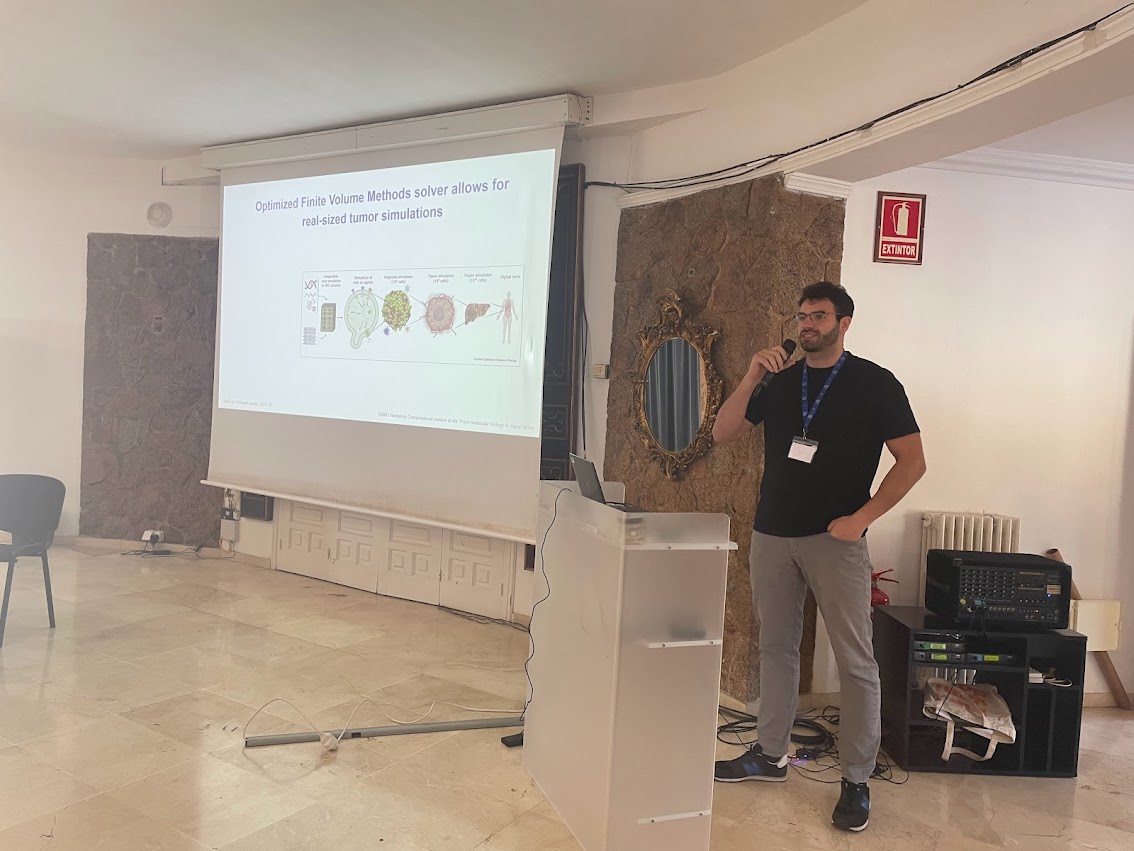

In the effort towards fostering diversity and equality, PerMedCoE proudly sponsored 10 grants awarded to female participants. This strategic initiative aimed to elevate voices and perspectives, contributing to a more inclusive and representative event landscape.
In summary, the recent workshop on single-cell omics, modeling, and high-performance computing served as a platform for scientific exchange. The diverse format and global participation reflected a commitment to collaboration. The event’s impact lies in its contribution to ongoing research, with a focus on realistic and scalable human digital twins.





